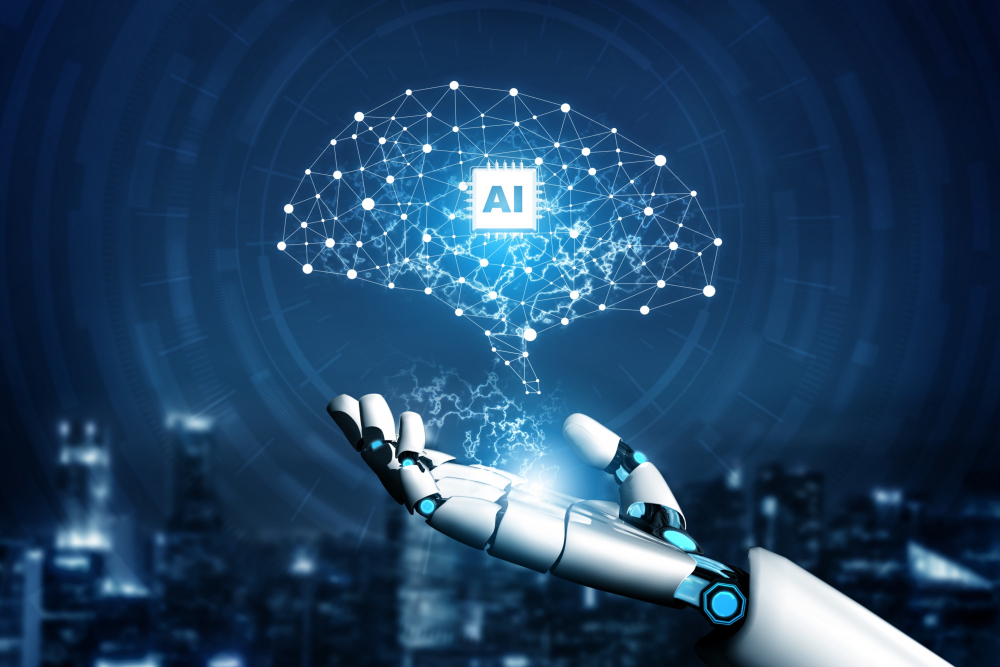What changes is AI making in the medical field?
Artificial intelligence, or AI, has been shaking things up in various industries, and guess what? Healthcare is no exception! AI has this incredible potential to totally change the way we do healthcare, and I’m talking about everything from how we diagnose and treat patients to how we push the boundaries of medical research and analysis. It’s like a healthcare revolution waiting to happen, and AI is at the forefront of it.
So, in this article, we’re going to dive into all the cool stuff AI is doing in the medical field. We’ll chat about how AI is supercharging medical diagnosis and treatments, turbocharging medical research, and even giving medical imaging and analysis a futuristic makeover. Plus, we’ll talk about how AI can help make healthcare more accessible and affordable for everyone.
But wait, there’s more! We’ll also get into the nitty-gritty ethical questions about using AI in healthcare because, you know, it’s not all sunshine and rainbows. And finally, we’ll peek into the future and see what exciting possibilities and challenges AI has in store for the healthcare world.
So, hang on tight as we explore how AI is basically turning the healthcare industry upside down, making things better for patients and healthcare providers alike. It’s a real game-changer!
Exploring the Impact of AI in the Medical Industry
The healthcare sector is experiencing a profound transformation thanks to the integration of artificial intelligence (AI). With venture capital investments in healthcare-related AI reaching an impressive $8.5 billion, it’s no surprise that major players like tech giants, pharmaceutical companies, medical device manufacturers, and health insurers are all eagerly diving into the AI healthcare ecosystem. While AI’s immediate influence is most noticeable in fields like radiology and pathology, its potential extends far beyond.
AI brings with it the promise of addressing some of the most significant challenges facing the global healthcare industry. This includes reducing patient waiting times and boosting the overall efficiency of hospitals and health systems. In fact, AI has the potential to contribute an astounding $15.7 trillion to the global economy by 2030 – a figure that underscores its game-changing impact.
North America leads the way in harnessing AI’s potential within North America, accounting for a substantial 58% of the revenue share linked to AI implementation. However, what truly sets AI apart is its ability to decentralize and democratize medicine. This means that people who previously lacked access to top-tier medical facilities or physicians can now receive high-quality diagnostic care without ever leaving their homes.
In essence, the advancements in AI are paving the way for innovation and introducing new approaches that, just five years ago, might have seemed entirely implausible. It’s no exaggeration to say that AI is one of the most transformative technologies we’ve witnessed, poised to reshape our world on an unprecedented scale.
AI’s Transformation of Medical Diagnosis and Treatment
The medical industry is undergoing a remarkable revolution, thanks to the integration of artificial intelligence (AI), particularly in the realms of diagnosis and treatment. AI’s evolution in machine learning algorithms has endowed it with the ability to carry out precise medical diagnoses and craft effective treatment strategies.
In the field of radiology, AI stands as a formidable ally. It possesses the capacity to analyze intricate medical images such as X-rays, CT scans, and MRIs at a pace surpassing human expertise. This accelerated analysis empowers doctors to swiftly identify potential health risks, greatly enhancing their capability to design tailored treatments for their patients.
Yet another noteworthy application of AI lies in the realm of personalized treatment plans. Drawing from extensive patient data, AI algorithms can formulate personalized treatment recommendations grounded in genetic information, medical history, lifestyle choices, and various other pertinent factors. Consequently, these treatments hold higher prospects of effectively addressing an individual’s unique medical condition.
Moreover, AI assists medical professionals in expediting decision-making processes by instantaneously cross-referencing a patient’s symptoms with vast global databases of similar cases. This rapid comparison accelerates the diagnostic phase, proving invaluable when time is of the essence or a swift response is imperative in the face of a critical condition.
Of course, challenges persist, such as the imperative need to ensure the ethical and equitable application of these AI-driven approaches. However, one thing remains undisputed: artificial intelligence has the potential to usher in a healthcare revolution, reducing costs while simultaneously elevating the quality of care. As we continue to incorporate these promising technologies into our healthcare system, we can confidently anticipate a wave of new opportunities unfolding, benefiting both patients and healthcare providers alike.
AI’s Role in Advancing Medical Research
Artificial Intelligence (AI) is making significant strides in the field of medical research, reshaping the way we approach scientific investigations. AI algorithms are adept at sifting through vast troves of medical records and genetic data to unveil novel connections between genetic and environmental factors. This, in turn, holds the promise of unveiling groundbreaking treatments and diagnostic tools for an array of diseases.
AI’s impact on medical research doesn’t stop there. It also extends to the identification of potential drug candidates and streamlining clinical trials. Researchers leveraging AI-powered tools not only formulate hypotheses but also rigorously test them through simulations. This meticulous process enhances the precision of predictions, reduces costs, and expedites drug development, all while minimizing the risks associated with human trials.
However, the integration of AI into medical research introduces ethical and legal considerations. Safeguarding the privacy of patient data utilized in the analysis is paramount. Additionally, there’s growing concern about bias stemming from the underrepresentation of diverse populations in the datasets used for machine learning. If unaddressed, this bias could inadvertently lead to the development of discriminatory policies or services that disproportionately affect groups excluded during the model training process.
In summary, AI’s foray into the medical research arena holds immense promise for improving patient outcomes. It leverages machine assistance for large-scale data analysis tasks that were previously beyond human capacity or efficiency. However, the ethical dimensions of AI implementation underscore the need for meticulous handling and accountability in decision-making based on AI-generated insights.
AI’s Transformative Impact on Healthcare Accessibility and Affordability
AI is poised to revolutionize the healthcare landscape by not only enhancing patient outcomes but also by making healthcare more accessible and cost-effective. The global AI market in healthcare is on track to reach an impressive $64.10 billion by 2029, signalling strong investor confidence in its potential impact. Venture capital investments in the top 50 healthcare-related AI firms have already surged to a remarkable $8.5 billion.
The magic of AI lies in its ability to transform time-consuming and inefficient tasks into actionable insights, resulting in better healthcare outcomes. This technology holds the promise of streamlining diagnoses, improving care coordination, and fostering more engaged patients. Emerging AI technologies like chatbots and predictive risk scores offer patients rapid responses, slashing wait times and minimizing unnecessary visits to physicians.
By harnessing AI’s power, hospitals and clinics can achieve cost savings through the automation of processes such as medical billing and drug management. Simultaneously, patients benefit from an improved user experience, sparing them the long wait times commonly associated with doctor’s appointments or pharmacy visits. This, in turn, helps to curtail the wasteful expenditure currently estimated at between $1,100 and $1,700 per person annually in healthcare.
In summary, AI is a game-changer when it comes to improving healthcare accessibility and affordability. It does so without compromising on the quality of care delivery, creating more value for patients, particularly those in underserved regions and developing countries where access to qualified medical professionals is limited.
Navigating Ethical Concerns in AI’s Role in the Medical Industry
As the integration of AI in healthcare continues to expand, it brings along a host of ethical considerations that demand our attention to ensure the realization of its potential benefits. Four key ethical issues stand at the forefront: informed consent, safety and transparency, algorithmic fairness, and data privacy. Tackling these concerns head-on is paramount to instilling patient confidence in the application of AI in medical care.
In parallel with these medical-specific concerns, AI raises broader ethical questions that reverberate through society. These encompass privacy and surveillance, bias and discrimination, and the evolving role of human judgment. Developers and users of AI technology must collaborate to forge solutions that honor human diversity, freedom, autonomy, and rights while constructing equitable systems that diligently counter potential biases.
The ethical foundation of patient care should serve as the guiding force behind the design and development of AI systems. This entails adhering to core principles such as non-maleficence (the commitment to do no harm), beneficence (the dedication to do good), respect for patient autonomy (empowering patients to make informed decisions), and justice (ensuring fair access to care). To preserve these principles during the design phase, interdisciplinary collaboration is indispensable, involving experts from diverse fields, including ethicists and social scientists.
In conclusion, while the promise of AI in healthcare is immense, it is imperative to maintain a laser focus on ethical considerations to maximize the benefits for all. Addressing ethical concerns, such as safeguarding data privacy, is not only vital for establishing public trust but also for upholding the moral values defined by our society. Engaging in ethical discourse among AI innovators will pave the way for pioneering ideas that aim not only to enhance medical outcomes but also to define an acceptable framework in harmony with healthcare practitioners, fostering a collective vision for an ethically robust system.


